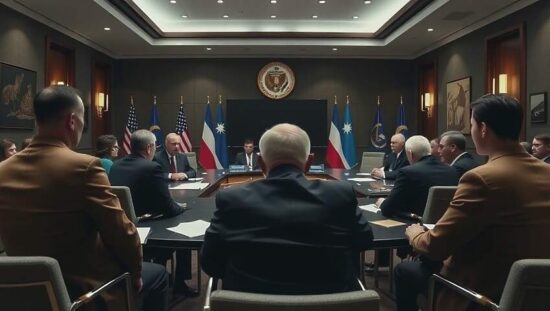The evolving US approach to Ukrainian peace negotiations, particularly under the potential return of Donald Trump, is generating considerable unease within German political circles. Steffen Bilger, parliamentary director of the CDU/CSU parliamentary group, voiced his astonishment at the perceived erratic nature of Washington’s actions, describing the situation as “very unusual.
Bilger’s comments reflect a growing sentiment that US foreign policy has become increasingly unpredictable. While acknowledging a cautious optimism that this “disruptive approach” “might” contribute to a viable peace agreement-provided it’s acceptable to Ukraine-he emphasized the unsettling manner in which the US is interacting with its NATO allies, Europe and Ukraine itself.
The recent sequence of events, including Trump’s ultimatum demanding immediate adherence to a peace plan and his subsequent backtracking, have exacerbated concerns. Trump’s public criticism of Ukraine’s lack of gratitude for US efforts, disseminated through his Truth Social platform, further underscores a transactional and potentially destabilizing posture towards a vital strategic partner.
German officials appear to be observing a delicate balancing act: recognizing the potential for unorthodox diplomacy to break deadlock while simultaneously worrying about the erosion of established alliances and the potential for unilateral action that could undermine broader international efforts to support Ukraine’s sovereignty and security. The comments highlight a growing dependence on dissenting voices within the US political landscape, such as those of Foreign Minister Rubio, to mitigate the potential for damaging shifts in US policy. The long-term implications of this volatile situation remain a significant concern for European policymakers.





